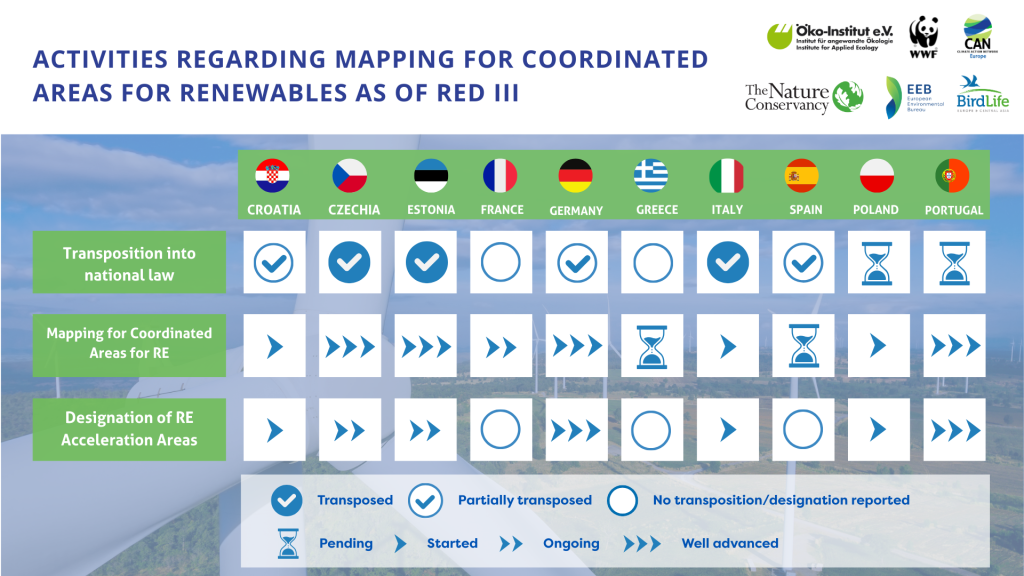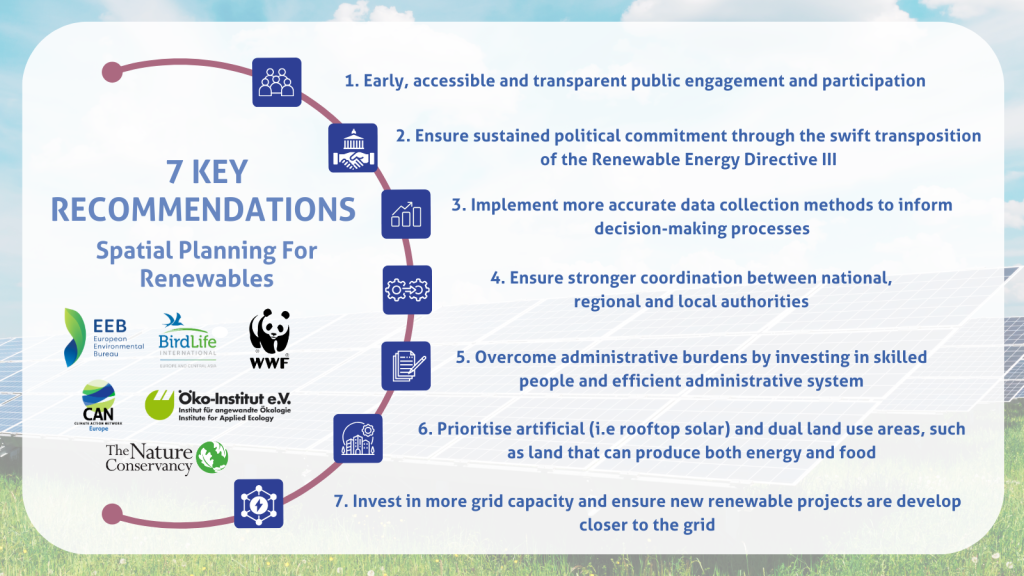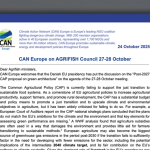
This joint analysis conducted by the Oeko Institut, CAN Europe, WWF EPO, Birdlife Europe and Central Asia, the European Environmental Bureau and The Nature Conservancy provides an update on the progress of 10 EU Member States on their transposition of the Renewable Energy Directive (RED III), their implementation of spatial mapping and planning for renewables and the designation of renewable acceleration areas (RAAs). This analysis is an update on the 2024 report and reveals mapping processes have been initiated in almost all countries, or RED III stipulations have been integrated into existing spatial planning processes for RE areas.
The report also highlights barriers across EU Member States that are hindering the transposition and implementation of RED III and provides recommendations in how governments can overcome these challenges.

The table above indicates the progress made in 10 EU Member States in regards to the transposition of RED III and implementation of Article 15b on coordinated spatial mapping of areas for renewable energy projects and Article 15c on the designation of RAAs within the mapped areas.
Below are seven recommendations that Member States can undertake in order to speed up their deployment of renewables in an inclusive, fair and nature-positive manner.


Co-funded by the European Union. Views and opinions expressed are however those of the author(s) only and do not necessarily reflect those of the European Union or CINEA. Neither the European Union nor the granting authority can be held responsible for them.



